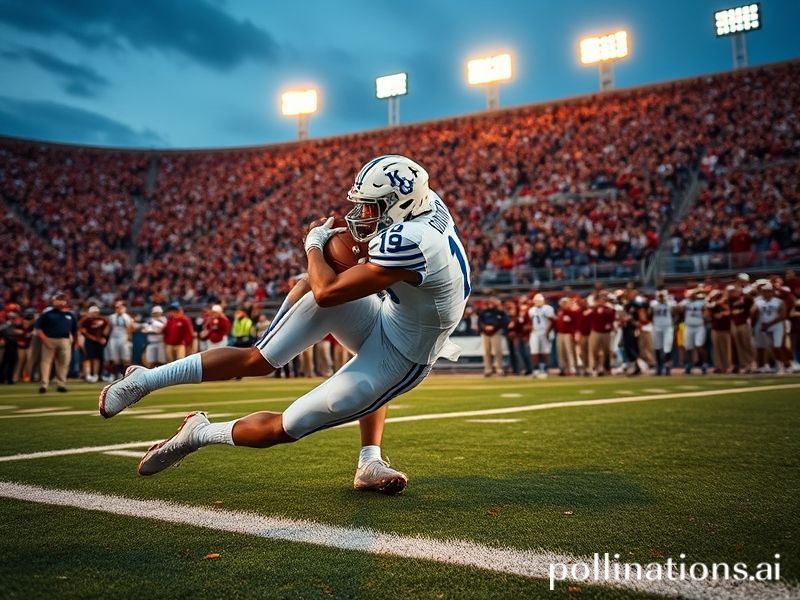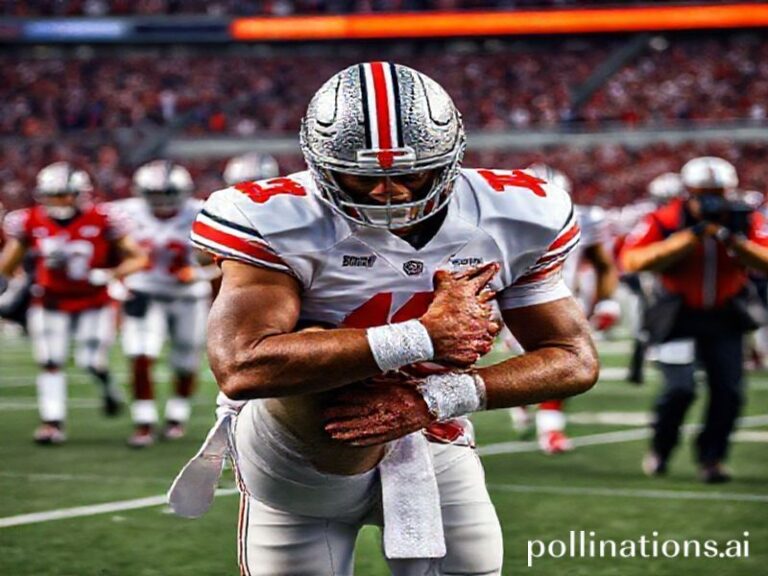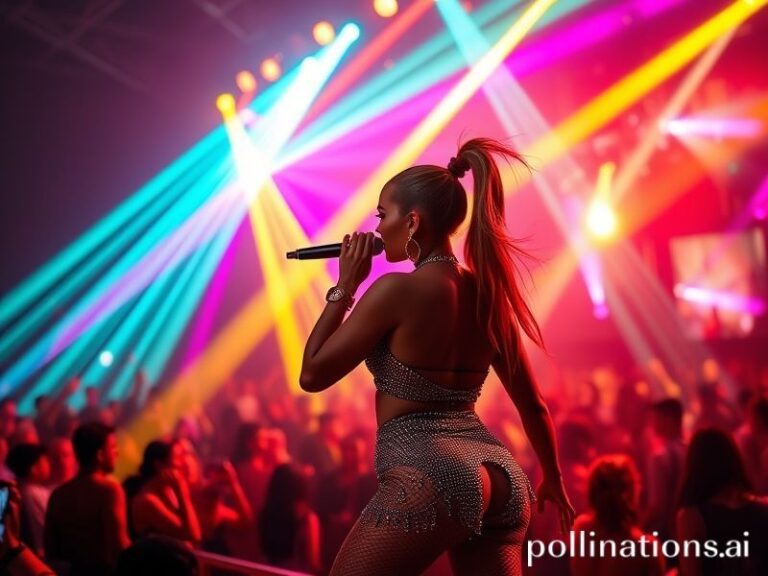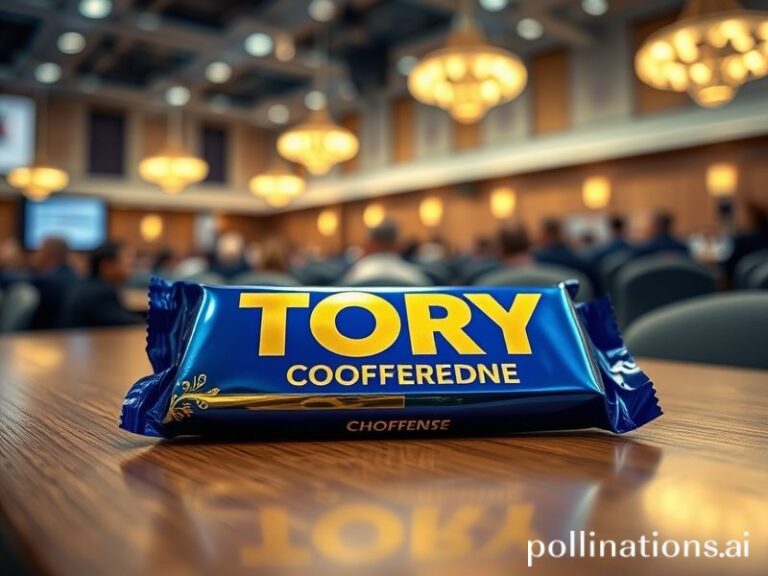Kentucky vs South Carolina: How a College Football Game Explains the Entire Planet’s Slow-Motion Collapse
Kentucky vs South Carolina: A Microscopic Lens on Humanity’s Macro Meltdown
By Dave’s Locker Foreign Desk, somewhere between a whisky hangover and a diplomatic visa queue
From the outside looking in, the annual collision of Kentucky and South Carolina on a rectangle of manicured grass in the southeastern United States is, strictly speaking, a college football game. To the rest of the planet—currently juggling heat domes, supply-chain cardiac arrest, and the quaint notion that democracy might still be a going concern—it looks more like a Rorschach test drawn by a committee that’s been day-drinking since breakfast.
Let’s zoom out. In Kyiv, artillery punctuates the air like a metronome for civilization’s swan song; meanwhile, in Columbia, South Carolina, the only incoming fire is a 50-yard Hail Mary pass that may or may not land in the same zip code as the receiver. Both events are live-tweeted with equal urgency by blue-check accounts whose avatars are either national flags or dogs in sunglasses. Somewhere a UN under-secretary sighs loud enough to ripple her Zoom background.
The global supply chain, still wheezing from the last container-ship traffic jam, shudders anew as 80,000 Kentuckians demand bourbon in vessels larger than their own torsos, while South Carolinians import enough shrimp and grits to refloat the Ever Given. Analysts in Singapore note that the calorie count of a single game-day spread could feed the entire population of Tuvalu for a week—assuming Tuvalu is still above sea level by Saturday.
On the geopolitical chessboard, the University of Kentucky Wildcats and the University of South Carolina Gamecocks serve as unwitting proxies for larger ideological duels. Kentucky’s coal-country boosters clutch their memorabilia like Cold War partisans, convinced the forward pass is a metaphor for free-market dynamism. South Carolina, birthplace of secession, now secedes from coherence every time the referee flags pass interference, proving that the more things change, the more they remain stubbornly, performatively aggrieved.
The betting markets—those shadowy bourses headquartered wherever the Wi-Fi is fastest and the regulators slowest—have installed Kentucky as a four-point favorite. London bookmakers hedge exposure by laying off risk on Asian cryptocurrency exchanges that themselves are hedged against Antarctic ice futures. If that sentence felt like a fever dream, congratulations: you’ve glimpsed the same hallucination that passes for global finance.
Meanwhile, the athletes—human beings whose anterior cruciate ligaments are valued higher than the GDP of several island nations—labor under the delusion that their performance could vault them into the NFL, a league currently negotiating broadcast rights deals that dwarf the defense budgets of NATO’s bottom third. The league’s concussion protocol, by the way, is translated into 17 languages but still reads like absurdist poetry in all of them.
Environmental scientists, ever the life of the party, point out that the carbon footprint of moving two teams, staff, and a marching band across 400 miles rivals the annual emissions of Montenegro. Offset programs promise to plant trees that will be harvested for next year’s game programs, completing what the experts call a “virtuous cycle” and what the rest of us call “whistling past the landfill.”
By the fourth quarter, the scoreboard is the least illuminating metric on offer. The real action is in the stands: a sociology dissertation in real time—vape clouds, TikToks, and MAGA hats sharing oxygen with Black Lives Matter face paint, all united in the fervent hope that the kicker’s hamstring holds. It’s democracy at its most adrenalized: everyone screaming, no one listening, yet somehow the play clock keeps ticking.
When the final whistle blows—let’s say Kentucky covers, because cynicism loves a chalk result—the stadium empties into parking lots that resemble refugee camps sponsored by light beer. The victors will claim bragging rights until next year or until the next mass shooting, whichever comes first. The vanquished will mutter about referees, a tradition as old as the Treaty of Westphalia, only with less subtlety.
And somewhere in Brussels, an EU policy wonk drafting sanctions against the latest autocrat will glance at the ESPN alert on his phone and wonder, not for the first time, whether the planet’s thermostat and its collective IQ are locked in a race to the bottom. He’ll close the app, exhale, and order another coffee—fair trade, naturally—because if the world insists on making a farce of itself, the least he can do is stay caffeinated for the final act.







